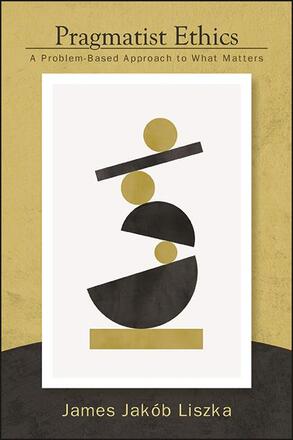
Pragmatist Ethics
A Problem-Based Approach to What Matters
Alternative formats available from:
Argues that the path to the good life does not consist in working toward some abstract concept of the good, but rather by ameliorating the problems of the practices and institutions that make up our practical life.
Description
Grounded in American pragmatism, Pragmatist Ethics proposes a rethinking of ethics. Rather than looking to the good—a concept for which consensus is difficult to achieve—pragmatists instead advocate for tending to the problems of the day. James Jakób Liszka examines how daily practices and institutions are originally conceived and then evolve to solve certain problems, and that their failure to do so is the source of most problems. Liszka argues that the ethical goal, therefore, is to improve upon these practices and that the sort of practical reasoning that characterizes practices can be enhanced by a more scientific, empirical approach. But how do we know when changes to practices and institutions are progressive? Problems will plague the best of communities; the better community is the one that succeeds best at solving its problems. Pragmatist Ethics examines various accounts of improvement and progress, concluding that the problem-solving effectiveness of communities is the key to progressive changes.
James Jakób Liszka is Senior Scholar at the Institute for Ethics in Public Life and Professor of Philosophy at the State University of New York at Plattsburgh. He is the author of Charles Peirce on Ethics, Esthetics and the Normative Sciences; Moral Competence: An Integrated Approach to the Study of Ethics (second edition); A General Introduction to the Semeiotic of Charles Sanders Peirce; and The Semiotic of Myth: A Critical Study of the Symbol (Advances in Semiotics).